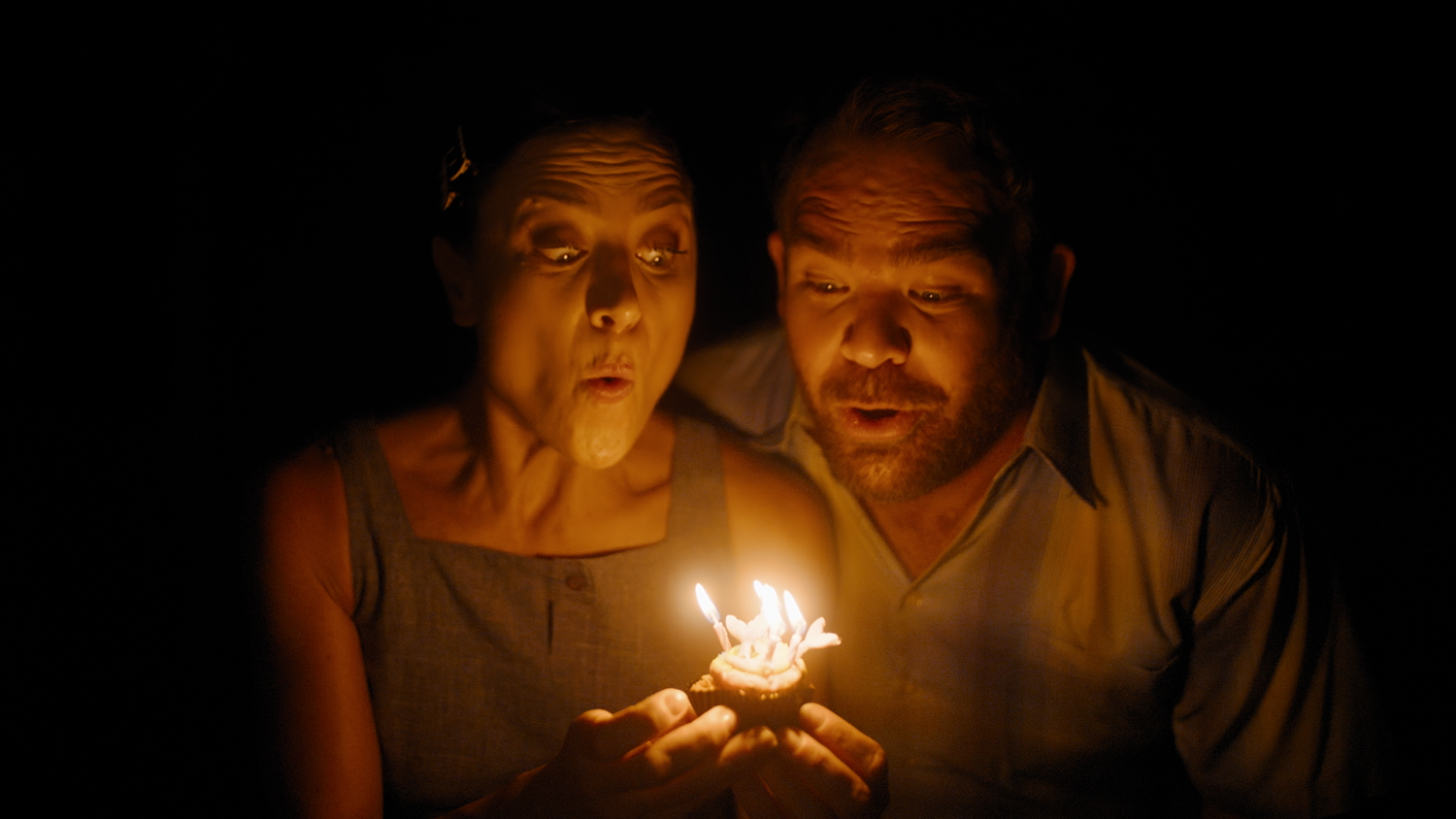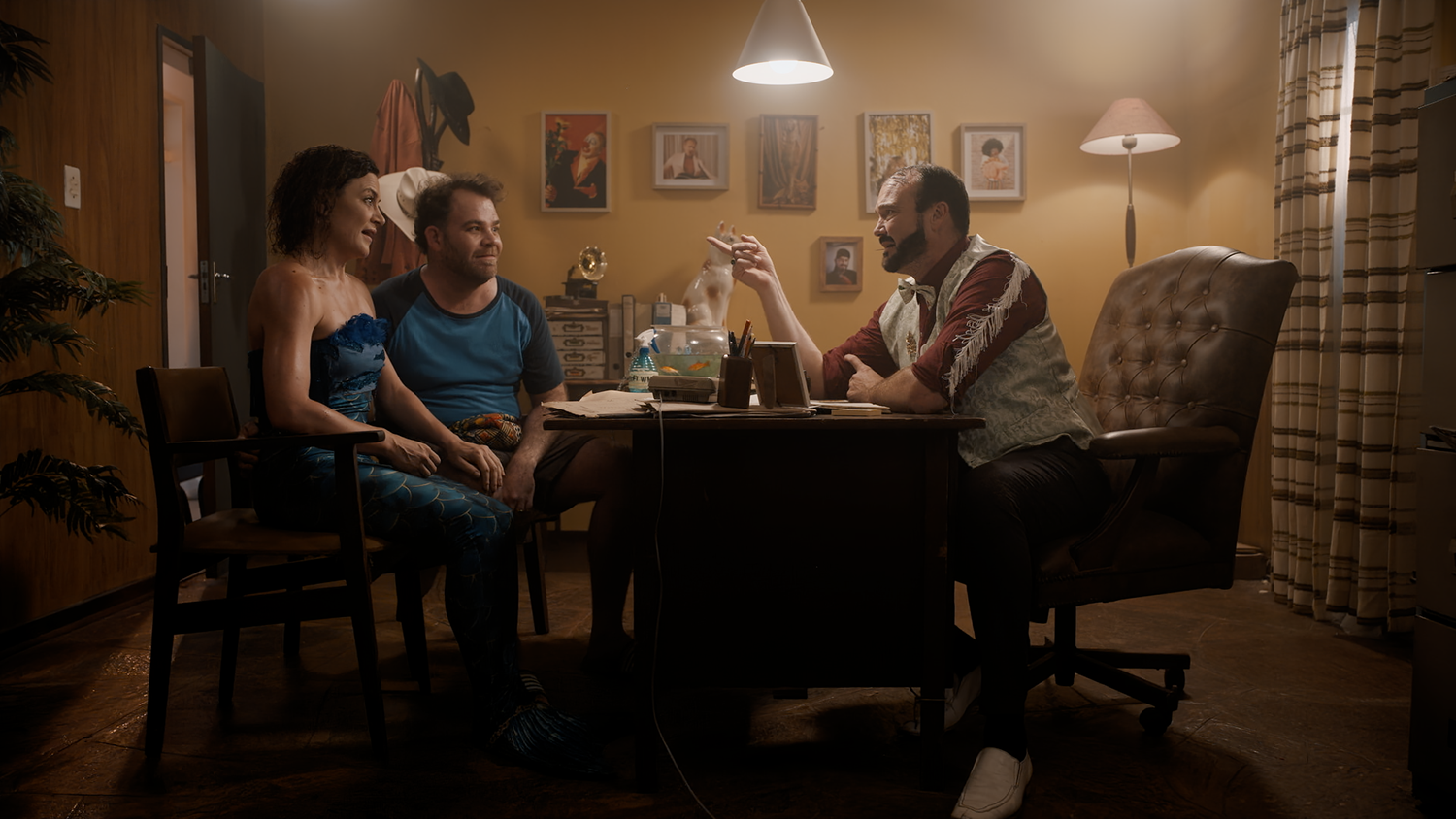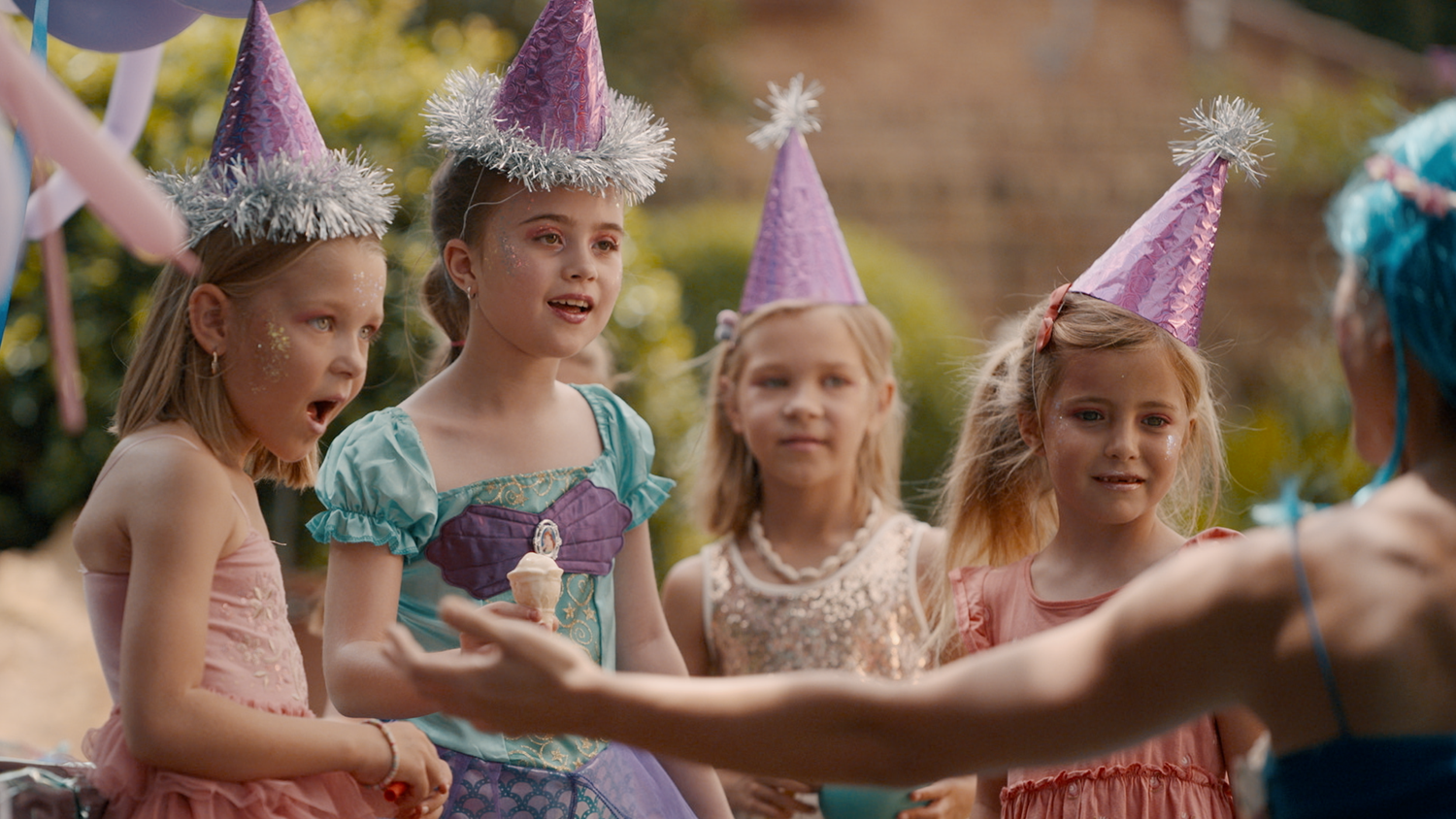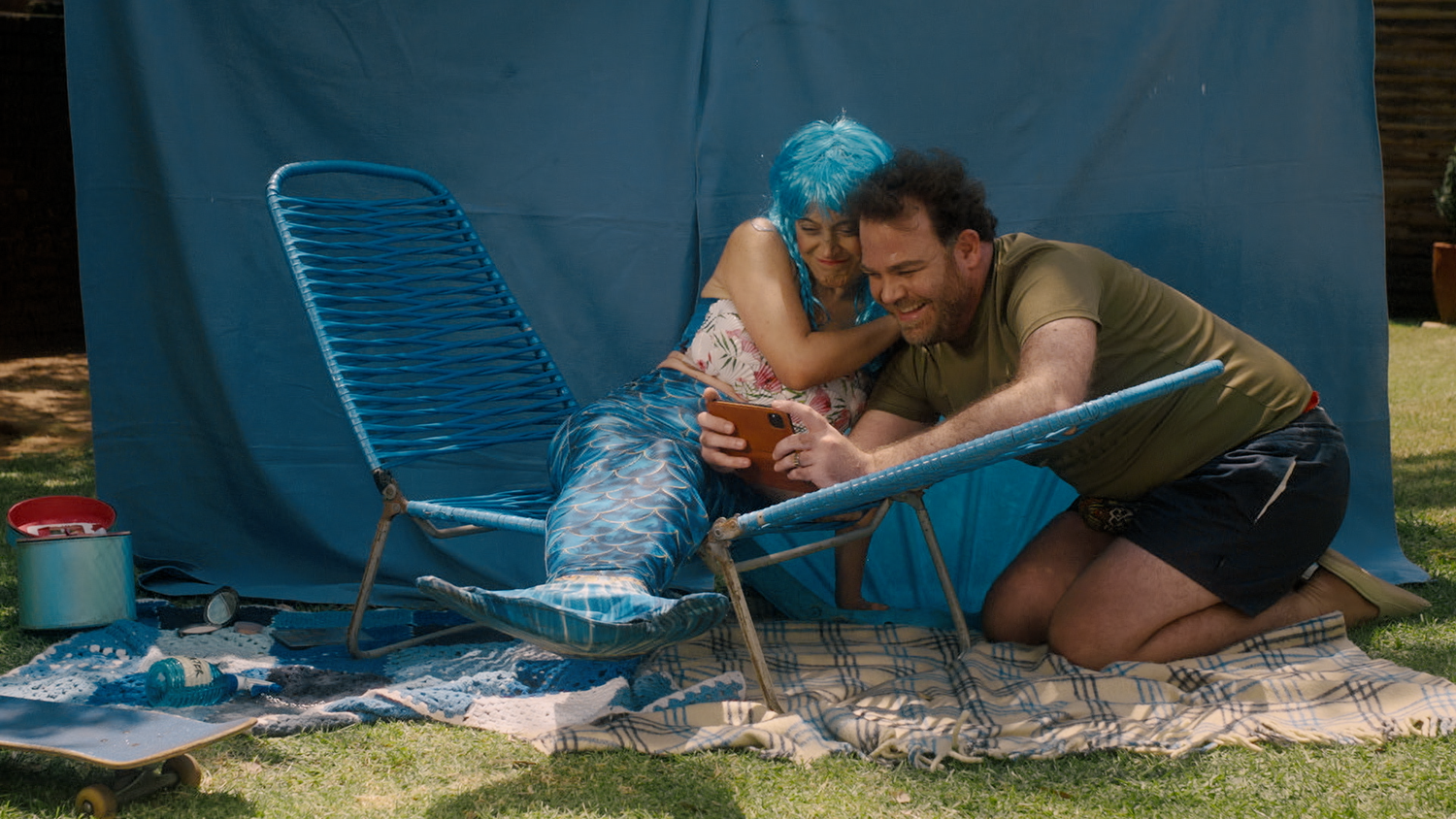



Short Film by emerging filmmakers: Min of meer
Jana (Liezl de Kock) wants to be a mermaid, and her husband, Jakob (Tiaan Slabbert), does everything in his power to make that fantasy a reality. But her first professional appearance as a mermaid turns into a disaster, and in the process, heartbreaking secrets come to the surface …
This short film marks actress Cindy Swanepoel’s directorial debut, with Anél Wood penning the screenplay. Cindy and Anél, who co-produced the film under the banner of their company Swan Dive Collective, share more about the world of Min of meer.
Where did the idea for Min of meer come from?
Anél: The story of a woman who lives like a mermaid and never takes off her mermaid tail is one Cindy had long wanted to tell. I was fortunate to turn her idea, already rich with magical potential, into a script and build a world around the mermaid character.
Cindy: I’ve had this story in my head for so many years. At first, I wanted to play the character of Jana myself, but I also wanted to step out of my comfort zone as an actress and see how I would fare as a director. We decided to submit the story to the Silwerskermfees because the festival offers opportunities to try things that you’ve never done before. And when the Silwerskermfees accepted the concept, it was as if everything around us just shouted, “Yes! Yes! Do it! Do it!”
Anél, how did you turn Cindy’s initial idea into a screenplay?
First, I wanted to give the character Cindy envisioned a reason why she never removes her mermaid tail. That motivation led to choices and characters that would further colour the story – sometimes dark, sometimes light. I wanted to give Cindy’s wonderfully quirky ideas, like how the woman’s house looks and how she performs at children’s parties, as much space and life as possible.
At the same time, I had to ensure there was enough intrigue and that the audience could still buy into this slightly absurd world with empathy. I aimed to create well-rounded characters with hopes, dreams, flaws, and conflict. My writing style often leans toward “laughter with a tear”, which was exactly what Cindy wanted for the story. I love stories that make me laugh out loud one moment and grab or break my heart the next. I hope that’s the experience audiences have when they see the film.
Is Min of meer the first short film you’ve done together?
Anél: Cindy and I run Swan Dive Collective, which produced the film, and we’ve created several video and stage productions together. This is our first film project, which, thanks to André Badenhorst (production design) and Alan Sayers (cinematographer and editor), we also see as a piece of art.
What is your creative partnership like? Do you work well together?
Anél: We’re both dreamers with heads full of stories we want to bring to life. We were lucky to become friends before becoming business partners, because we think and dream in very similar ways, but always work from a place of respect and love for each other. That’s important in an industry where the work is often personal and challenging. We’re both highly creative, so we explore every possible angle of an idea until we land on a decision that excites us both. The result is that we’re always passionate about what we do. So yes, working together is wonderful, but we prefer to call it “playing” together.
Cindy: Working with Anél is incredible. She’s so talented and always understands what I want. We make such a good team. She excelled as the producer of this film, but especially as the writer. I’m deeply grateful to her.
Cindy, this was your first venture as a director. How would you sum up the experience?
It was truly amazing – one of the most enjoyable experiences of my career so far, partly because it was something completely new. I had so much fun, and I’d love to direct again.
The emotional impact of the story – the humour and the heartbreak – rests largely on the performances of Liezl de Kock and Tiaan Slabbert. How did you decide on them as leads?
Cindy: Liezl’s audition was incredible. She had such a great grasp of the concept “laughter with a tear”. There’s always a sadness in her eyes, and that’s exactly what the character needed. Tiaan originally auditioned for the role of Thea die Meerman, but then the suggestion came that he should play Jakob instead. I immediately thought yes, because if someone understands comedy well, they’re usually also very good at drama. The more I watched his performance, the more beautiful it became to me. Both of them delivered exceptional work.
Anél: The childlike wonder that shines in Liezl’s eyes, along with her physical strength and movement abilities, wasn’t just fitting – it was essential for the actress who would play Jana. Her audition was naturally strong and convincing. On the other hand, we knew the role of Jana’s husband, Jakob, would be a wonderful challenge for a comic actor since he barely speaks in the film. Tiaan Slabbert is an actor we believed in, someone with both comedic timing and emotional depth. We knew he would bring nuance to our antihero.
Jakob has no dialogue until the end of the film. Was the physicality written into the script, or did Tiaan develop it himself?
Anél: You generally don’t want to dictate too much in the text about how a character should move or feel – that’s something for the actor and director to explore. But I did write in moments where Jakob could pause, breathe, and take in what was happening around him, as well as moments where he makes (or doesn’t make) decisions. I wanted the audience to want to grab him by the shoulders and shout, “Say something, Jakob!” Making his character silent was also meant to show that everyone processes trauma and conflict differently, and that we can push each other to the brink – not only through words, but also through silence.
Thematically, Min of meer is multi-layered and especially explores the use of masks to hide (or simply survive) our pain. What is, for you, the most important message the film conveys?
Cindy: That’s exactly it – it’s about how we can live in denial and how our wounds can actually get worse if we ignore them. It’s also about how we enable each other to live a lie, like Jakob does for Jana by encouraging her mermaid fantasies. Ultimately, if we don’t dig up our truths, the very thing we’re trying to avoid ends up happening.
Anél: For me, the strongest message is reconciliation with your past and acceptance of your present. We tend to think the past defines our present and that we must always strive for “more”, but sometimes it’s suddenly too late when we realise there is something, every single day, that we would miss if it were gone tomorrow.
